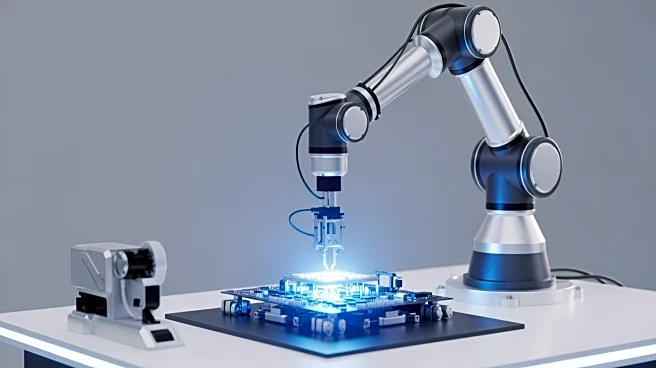What's Happening?
The U.S. tech industry is experiencing a significant increase in layoffs, with 33,281 tech workers losing their jobs in October alone, according to a report by Challenger, Gray & Christmas. This marks
the highest number of layoffs in the sector for a single month, surpassing figures from the COVID-19 pandemic-induced recession. The report attributes the layoffs to several factors, including AI adoption, reduced consumer and corporate spending, and rising operational costs. Major tech companies like Amazon and Microsoft have recently announced substantial job cuts, with Amazon laying off 14,000 employees and Microsoft cutting 9,000 jobs earlier this year. The report suggests that the labor market may continue to loosen as laid-off workers struggle to find new roles.
Why It's Important?
The surge in tech industry layoffs has significant implications for the U.S. economy and labor market. As tech companies adopt AI systems, there is growing concern about the displacement of workers and the potential for AI to replace human jobs. The layoffs could lead to increased unemployment rates and economic instability, affecting consumer spending and overall economic growth. Additionally, the tech sector's challenges may influence public policy discussions on AI regulation and workforce development, as policymakers seek to address the impact of automation on employment. The situation highlights the need for strategic planning and investment in reskilling programs to support displaced workers.
What's Next?
The tech industry may continue to face layoffs as companies adjust to economic pressures and explore AI integration. Stakeholders, including corporate executives and policymakers, may need to address the ethical and economic implications of AI-driven job displacement. There could be increased advocacy for policies that support workforce transition and protect workers' rights in the face of technological advancements. The industry may also see a shift towards more sustainable business models that balance innovation with employee welfare. As the situation evolves, monitoring the impact on the labor market and economic indicators will be crucial for informed decision-making.
Beyond the Headlines
The rise in tech layoffs raises broader questions about the future of work and the role of AI in society. The narrative of AI replacing human jobs may lead to public skepticism and resistance to technological advancements, affecting innovation and investment in the sector. The situation also highlights the importance of ethical considerations in AI development, as companies navigate the balance between efficiency and social responsibility. Long-term, the industry may need to redefine its approach to workforce management, prioritizing human-centric strategies that foster collaboration between AI and human workers.








